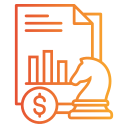Protect the Plan: Emergency Funds and Debt Strategies
Open a separate high-yield savings account and aim for a $1,000 starter fund, then one to three months of basic expenses. Automate contributions. When did your emergency fund save the day? Share your story to encourage someone starting from zero today.
Protect the Plan: Emergency Funds and Debt Strategies
Snowball builds motivation by clearing small balances first; Avalanche saves interest by tackling highest rates. Pick the approach your psychology will stick with. Which method fits your temperament? Comment, and we’ll help map your first three targeted payments with dates.
Protect the Plan: Emergency Funds and Debt Strategies
Pause extra payments if income is unstable, emergencies strike, or minimums feel tight. Stabilize first; resume intensity later. A flexible budget survives shocks. Tell us your current risk level, and we’ll suggest a balanced split between savings and debt for the next quarter.
Protect the Plan: Emergency Funds and Debt Strategies
Lorem ipsum dolor sit amet, consectetur adipiscing elit. Ut elit tellus, luctus nec ullamcorper mattis, pulvinar dapibus leo.




